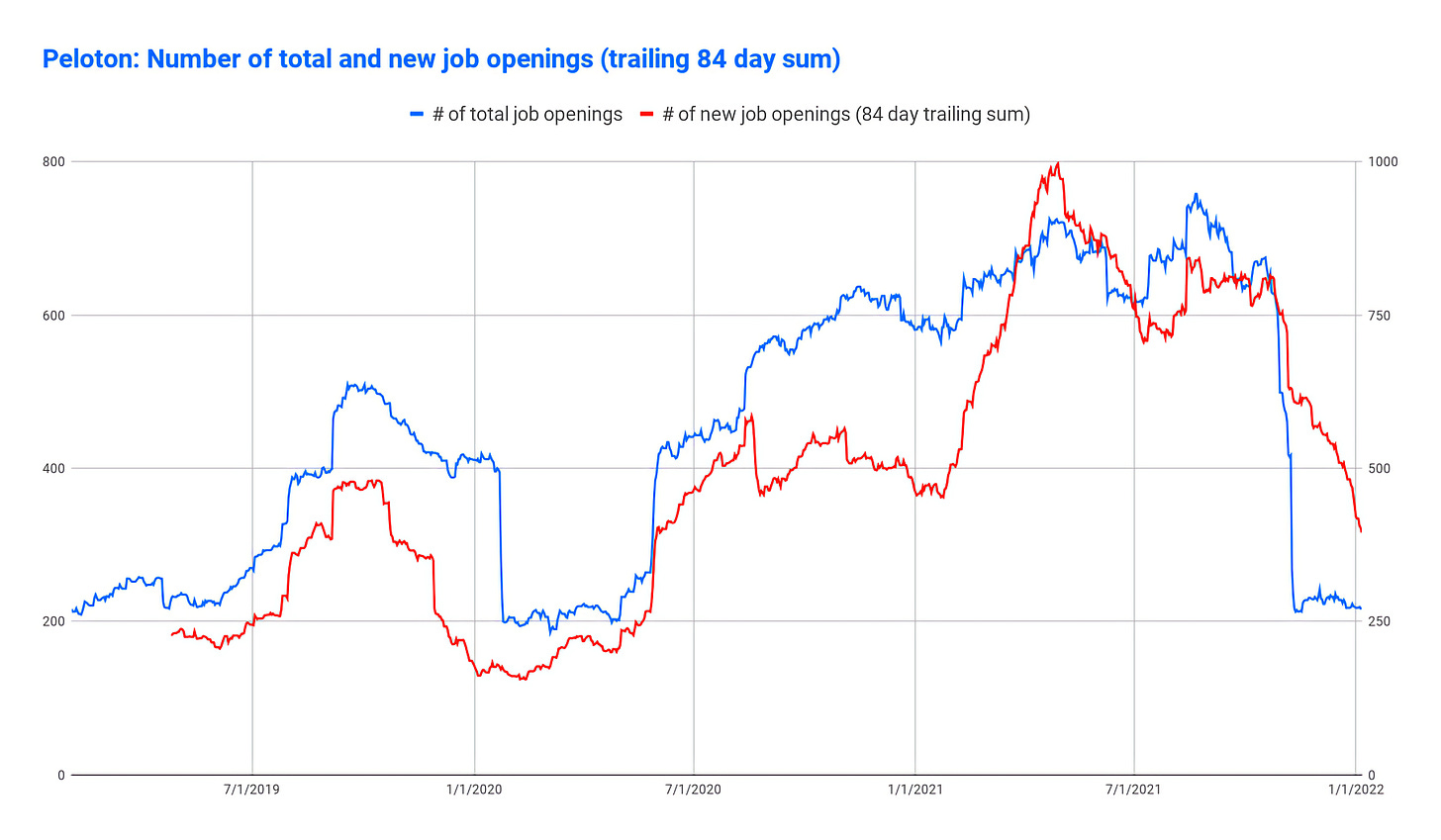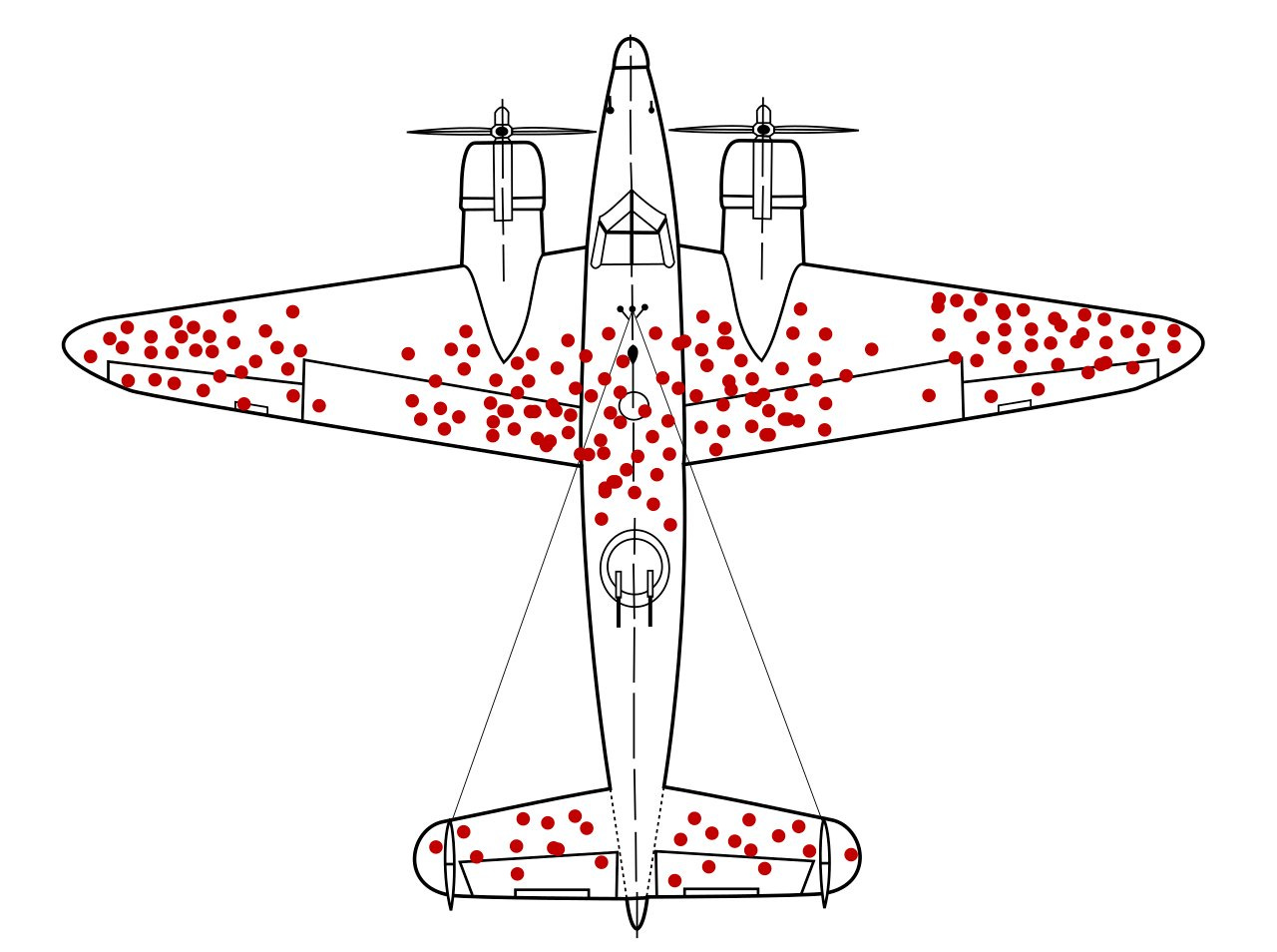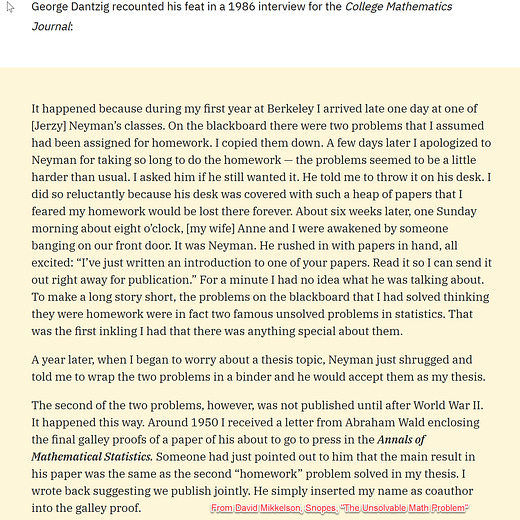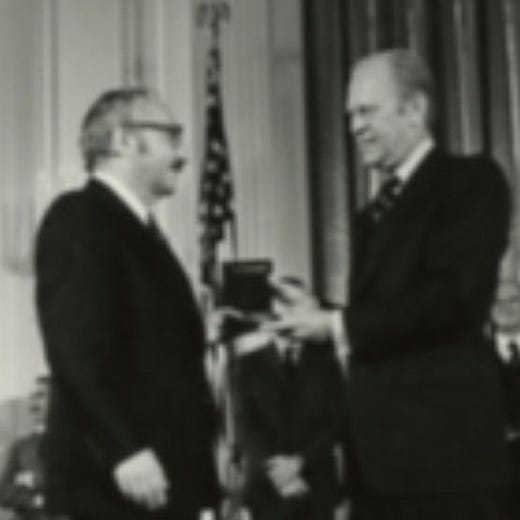247: Microsoft, Ukraine, Koyfin, Nvidia, TSMC & Samsung, Nord Stream 2, Ethereum Hack, World Shipping, Good Will Hunting, and Anthony Bourdain
"Freedom isn’t free. It’s not passive, it’s active."
Hard choices, easy life. Easy choices, hard life.
—Jerzy Gregorek
🤴 Ladies and gentlemen, today, the part of King George from Hamilton will be played by Vladimir Putin:
"Our Ukrainian brothers are really part of Russia, let me demonstrate that by *bombing them*"
...
"Cuz when push comes to shove
I will kill your friends and family to remind you of my love
Da da da dat da dat da da da da ya da"It was odd for Putin to insist that Ukraine should really be part of Russia and then expect people to tolerate fellow Slavs - often their relations - being bombed. Putin, like most autocrats, has a residual fear of his own people, and may start to be concerned about how they might react to even more casualties of their own, brutality in Ukraine, and international condemnation. (Source)
Look, I get it — some of you are like, ‘shut up about Ukraine, go back to tweeting about Deadwood and Constellation Software’… Trust me, I’d love to think about more pleasant things.
It’s always safer to stay silent, it always sounds smarter to be cynical, blasé, pessimistic (“Don’t you know war is hell? This is totally normal, it’s always like that, great powers play by different rules, realpolitik, etc”). You don’t get hurt as much if you don’t get your hopes up, don’t believe there’s a chance, just give up now and it’ll be easier… You don’t risk getting things wrong when you say nothing (we’ll get a lot wrong, because of the fog-of-war and psyops/propaganda, but it’s worse to say nothing at all when something should be said)...
Freedom isn’t free. It’s not passive, it’s active.
It’s not the default state of the world, and has *never* been. Defend it or lose it, grow it or it shrinks. Hopefully this episode makes a lot of people re-learn this important lesson.
Ukraine’s only chance lies in three things:
World opinion rallies massively in their favor and pushes governments to impose really strict sanctions that rapidly ratchet up and make this war extremely costly (and discourages future ones elsewhere).
Many countries support Ukraine with weapons, ammunition, fuel, intelligence, cyber-warfare, food, medical supplies, etc.
This analysis of the situation is correct and Russia has made numerous blunders in its invasion plan and has badly managed its military in the past decade — because of hubris, corruption, and they just don’t have the GDP to support their ambitions and are spreading it too thin, etc — while 2014 was a wake-up call to Ukraine’s military and they improved materially since then.
#1-2 don’t just magically happen, though.
Whatever has happened so far is only because the world is seeing what is going on — in the not-distant-past, Russia would’ve massed its forces in secret, created a false-flag and invaded under that pretense; we’d all have read a few Reuters and AP articles about it and seen grainy video of tracers going up in the night’s sky over Kyiv, and worldwide popular support would be tepid.
But today, every Ukrainian has an internet-connected camera in their pocket, they’re showing us their plight, and we’re having real-time conversations with them. The world is different.
Not only is this unprecedented because the large-scale, land invasion of countries in Europe hasn’t happened since WWII, but also because you can’t hide war from the rest of the world anymore — and the rest of the world can try to help you.
I have to follow my conscience on this one, and I hope you’ll follow yours.
Here’s a list of ways to help and support Ukrainian humanitarian and defense efforts (this link was shared by both Garry Kasparov & Anne Applebaum, so it seems very legit).
✍️ ✅ There’s a phrase I often say (I probably got it somewhere, not sure — maybe I just made it up..?):
Writing is hard because writing is thinking, and thinking is hard.Wander Bernstein mentions the benefits of writing for memory:
Not to mention the benefits of the decryption process. I am convinced I remember more because I wrote it down
It’s a great point.
In fact, I think that *anything* you put effort into is automatically more memorable, and I'm sure there’s also other beneficial effects from having to slow down to write, concentrate on exactly how to formulate things, noticing logic holes more easily on the page than in your head, etc.
🔪💡🏺 Jack Butcher (gotta say, that’s a badass name) posted:
Creativity before productivity.
There’s a very symbiotic and non-linear relationship between these things, if you take the broad meaning of "productivity", IMO.
You have to try lots and lots of things before you find good ideas, so being very productive helps with being more creative.
It reminds me of one of the canonical examples on this: they split a pottery class in two and had half the students make a single vase (or whatever) over multiple days, and they had the other half of the class make lots and lots of vases quickly.
Some people may think that spending a long time on a single vase would mean that this vase would be much better than the quickly made ones, but it’s the students who iterated a lot that did best (this isn’t purely about creativity, of course, but skill/craftsmanship in general).
🛀 Some people are right about most things. I try to listen to those people. Some people are wrong about most things.
I try to still learn from those people, mostly in how not to think ¯\_(ツ)_/¯
🤔 When disagreeing with someone on something, I think it’s healthy to say explicitly that “it’s possible that we’re disagreeing because I don’t know everything that you know on this topic, and it’s also possible that you don’t know everything that I know about this topic, so maybe we’re not actually talking about the exact same things, but rather two models that are close, but not fully overlapping”.
I mean, it’s kind of a nerdy thing to say, so reserve it for when the stakes are high enough, but I think it’s a good faith approach to truth-seeking, just like the concept of “steel-manning” (the reverse of a straw-man — a weaker version of an argument — is a steel man — the strongest possible version of that argument).
💚 🥃 No plea today either. It’s your decision:
A Word From Our Sponsor: 📈 Revealera 📊
Revealera provides data and insights for investors into hiring trends for 3,500+ public/private companies + technology popularity trends for 500+ SaaS/Cloud Products.
We give investors insights into:
Job Openings trends: Insights into a company’s growth prospects.
Technology Popularity Trends: Insights into how widely products like Datadog, AWS, Splunk, etc, are gaining adoption.
Vendor Sign-ups (Currently Alpha) tracks the # of companies, as well as the specific companies, that have signed up for SaaS products such as Zoom in near real-time.
Visit Revealera.com for a ✨free✨ trial/demo.
Investing & Business
‘map combining the worlds shipping lanes and the worlds airways’
Red is shipping lanes on the water, and white are flight paths (except that now all those flight paths over Russia are being diverted around it).
Source: Python Maps
🇺🇦 The Fintwit-Ukraine Connection
Hey Fintwit, you may not be aware, but there's a big connection between Fintwit and Ukraine. Most of the Koyfin team lives in Ukraine and is over there right now.
I know many of you are using their software every day and may not have known that, so I thought it was important to share 💛💙
Microsoft Surfing Waves 🌊🏄♂️
Good piece on Microsoft, its history and potential future by John Luttig:
Microsoft rode the PC growth wave for the next 25 years. In 1999, Microsoft was worth $620B, making it the most valuable company in the world. But by 2002, its market cap had dropped 60%. It was stuck in a massive hole dug by the inflated expectations of the dot com boom.
In the 2000s, Bill Gates’ successors took his mission to put a computer in every home too literally, expanding the Windows empire indiscriminately in every direction. [...]
2010s: finding the next wave
In hindsight, Microsoft’s defensive moves in consumer internet did not align with its DNA. But Microsoft has deep enterprise distribution and trust, something the other FAMGA members do not. Those advantages positioned Microsoft to capture the next wave: cloud infrastructure. Azure, Microsoft’s new cloud computing operating system, quickly became an offensive move. [...]
AWS’ four-year head start gave Azure a second mover advantage: it instantly had the accumulated learnings from AWS, which launched 4 years earlier. But unlike Amazon, Microsoft already had enterprise distribution. Once Microsoft started including Azure credits and consumption in its existing enterprise deals, the business took off.
Interesting to look at the revenue mix change over time:
Azure reached a $10b run rate by early 2019, just nine years after launch. This is faster than AWS, which became generally available in 2006 and hit a $10b run rate by 2016, and GCP which launched in 2009 and hit $10b revenue in 2020. [...]
In the 2020s, Azure will power most of the company’s growth. Azure gave Microsoft what it needed: a new wave to ride.
John sees a path for Microsoft to be the first $10T company, in part thanks to its relative antitrust immunity. You can read the rest here.
Nvidia was under cyberattack last week
Nvidia’s email systems and developer tools are understood to have been suffering from outages over the last two days, after what is believed to have been a malicious network intrusion. [...]
The intrusion was described by one insider as having “completely compromised” the company’s internal systems, although some email services were working on Friday. It is unclear if any data has been stolen or deleted from Nvidia or from its customers, or if the attack has merely disrupted its systems, and customers said they had not been informed of any incident.
The company is not yet believed to have identified a culprit. (Source)
‘Taiwan's TSMC says to comply with export control rules on Russia’ and South-Korea joins intl sanctions too (Samsung)
Looks like Russia is going to have to do without a lot of semiconductors… Maybe the Abacus will make a comeback?
Taiwan:
Taiwan's semiconductor companies are complying with government export controls to Russia, put in place as part of sanctions on Moscow for invading Ukraine, the Economy Ministry said on Sunday.
South-Korea:
"As a responsible member of the international community, the Korean government will support and join [its] efforts, including economic sanctions, to curb [Russia's] armed invasion and resolve the situation peacefully,” [...]
Semiconductors, electronics, and automobiles, South Korea's top exports to Russia, could all be affected by the latest export controls announced by the U.S. Commerce Department. They will require companies that use U.S.-origin technology in products, such as semiconductors, computers and aircraft parts, to receive Washington's approval before sending them to Russia.
’BP offloads its nearly 20% stake in Russia’s Rosneft’
BP CEO Bernard Looney and former exec Bob Dudley are also resigning from Rosneft’s board, effective immediately. Looney had been a director of Rosneft as one of two BP-nominated directors since 2020. Dudley had been a director since 2013, the company said. [...]
“This military action represents a fundamental change,” BP chair Helge Lund said in a statement. “It has led the BP board to conclude, after a thorough process, that our involvement with Rosneft, a state-owned enterprise, simply cannot continue.”
Science & Technology
Nord Stream 2 Pipeline Looks Dead (yay!)
There are decades when nothing happens, and weeks when decades happen.
Seems like just a few weeks ago that I was writing about how much of a terrible idea it was for Germany to make itself more dependent on Russian gas (and on coal, via shutting down its nuclear power plants), but at the time it was hard to know what could possibly change that since there’s so much inertia in these types of energy-policy decisions and everything happens over years and decades.
Well, it only took a few days for the whole world to change, and that includes a lot of things in Germany:
Mr. Scholz said that he would immediately invest 100 billion euros, equivalent to $113 billion, in weaponry. Starting now, he added, Germany’s military spending would exceed the North Atlantic Treaty Organization’s spending target of 2% of GDP, a goal that none of his predecessors managed since the end of the Cold War and that Germany had pledged to reach by 2024 as part of its commitments to NATO.
He said the government would create strategic gas reserves and finance the building of two liquefied natural gas import terminals on the country’s northern coast.
Mr. Scholz also announced concrete arms-systems procurements including the decision to buy state-of-the-art drones from Israel and F-35 warplanes from the U.S., which he said would be used to amplify NATO’s nuclear deterrent against Russia. (Source)
I think it’s pretty clear that Nord Stream 2 is dead and that Europe in general will do everything it can to stop being dependent on Russian energy.
Now Mr. Scholz, how about these perfectly good nuclear power plants you’ve got laying around in the early stages of decommissioning..?
Update: After writing the above, I saw this:
SOURCES: GERMAN FINANCE MINISTRY DISCUSSING ROLLING BACK NUCLEAR PHASEOUTLet’s hope they do the right thing… Late, but better than never.
Not that it would be easy, as this explains, but who said doing the right thing always had to be easy?
‘Hacker could’ve printed unlimited Ether but chose $2M bug bounty instead’ 💸
Software has bugs. That’s a fact of life.
A self-styled “grey hat” hacker figured out how to trick Ethereum scaling solution Optimism into effectively printing unlimited Ether earlier this month.
Software engineer Jay Freeman (who goes by Saurik online) didn’t leverage the exploit. Instead, he reported the issue to Optimism’s dev team, who paid him a $2-million bug bounty. [...]
This could be exploited to trick smart contracts into looping through the glitch — thus minting infinite “layer 2” crypto.
“With your unbounded supply of IOUs, you could go to every decentralized exchange running on the L2 and mess with their economies, buying up vast quantities of other tokens while devaluing the chain’s own currency,” wrote Freeman. (Source)
Abraham Wald: Bullet Holes & Good Will Hunting
I’m sure you’ve seen the image above, as it’s used pretty much every time someone explains survivorship bias.
The idea behind the image comes from a paper written by Abraham Wald, from a concept he developed in WWII. What I didn’t know was that Wald was the source of the true anecdote behind a famous scene in the film ‘Good Will Hunting’:
The Arts & History
👨🍳 ✍️ 🎥 🌍 Roadrunner: A Film About Anthony Bourdain (2021)
Before watching this documentary, I knew almost nothing about Bourdain.
Everything I knew was second-hand smoke: I knew that many others loved him, respected him, were deeply saddened by his suicide, and that he had a tough life.
But I listened to a great podcast by friend-of-the-show (🎙) David Senra of Founders Podcast that covers his biography and this film, and it made me want to learn more and see for myself.
The film was very good — very touching, especially the end — and helped me see what people saw in Tony. He was a tortured soul, a romantic, probably chronically depressed, an incredible writer and adventurer, and also insecure and always searching for something he could never quite grasp…
It’s hard to say more about it than that — if you already know Bourdain, then you know, but if you don’t, this is a good place to start.














Another great update! Love the work.
There's no "right" thing when it comes to nuclear reactors - just what's cheaper. The operators themselves are on record that at this point it would make no sense to let the reactors work longer (because of supply of nuclear fuel rods).